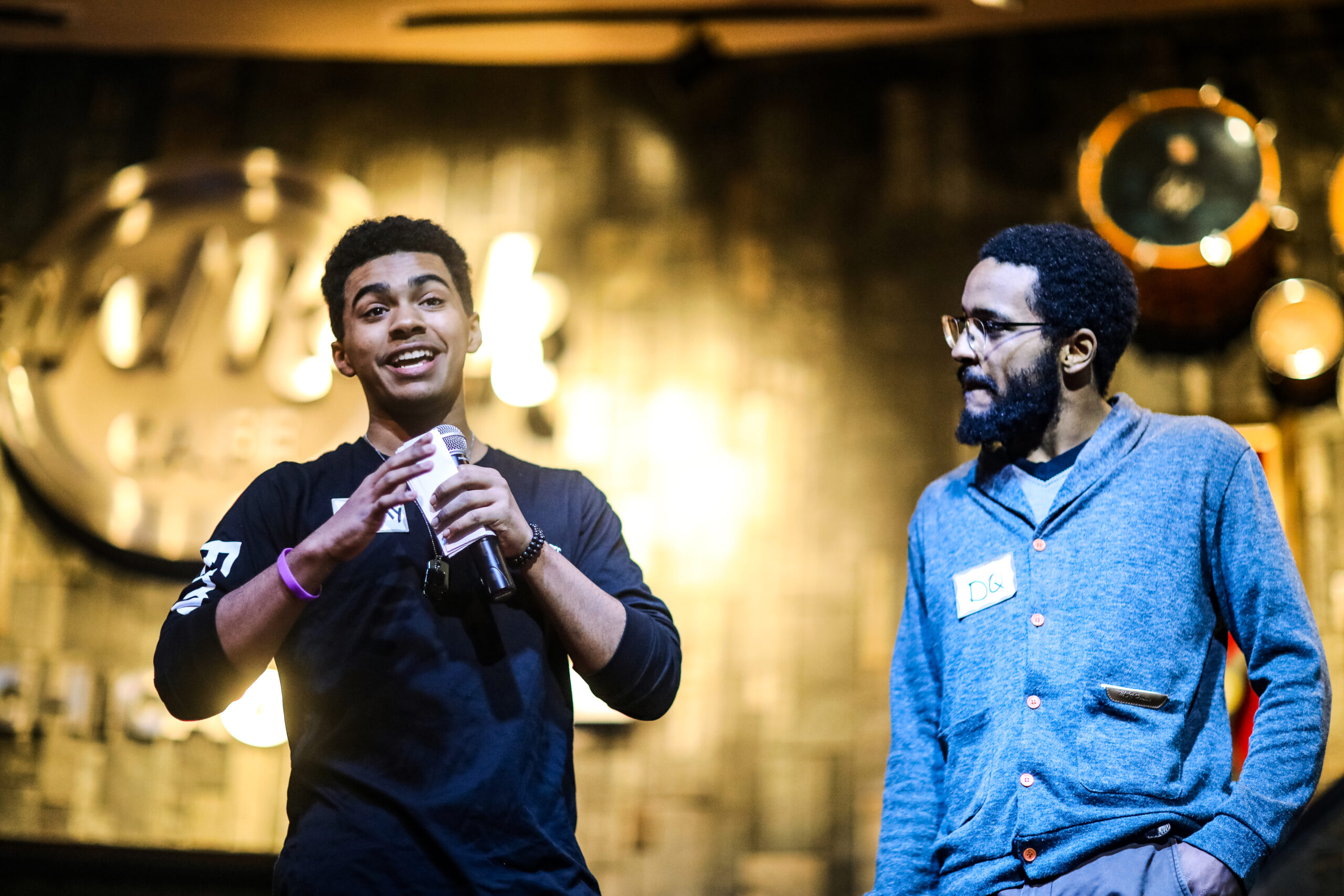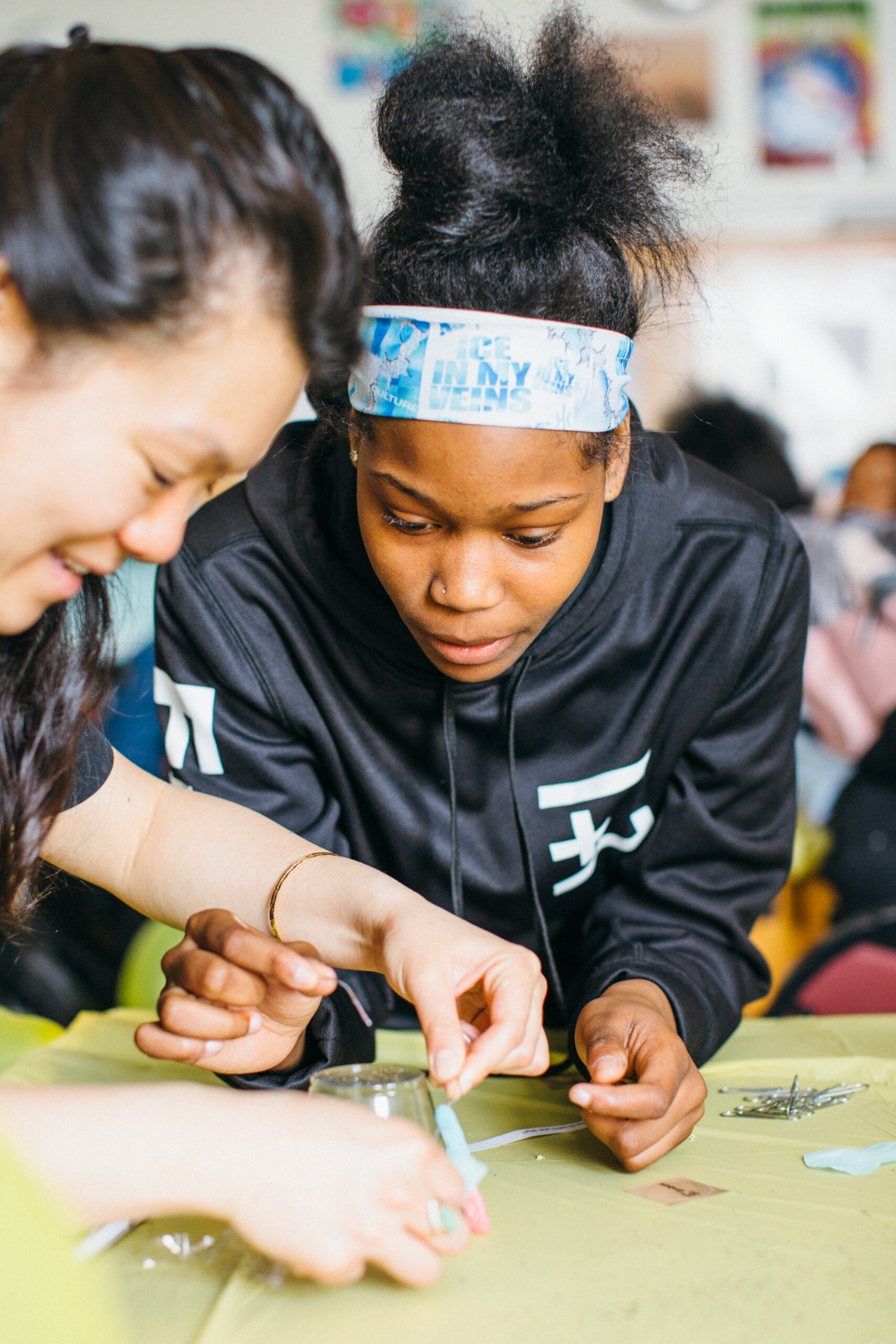Why Experiential Learning?

Our school system fails too many students of color.
But we have the power to transform our schools, and experiential learning is part of the solution.
At its heart, experiential learning is learning by doing. Leading research shows that experiential learning is one of the most effective tools to deliver critical social-emotional learning. It also helps heal trauma, reduce implicit bias and build empathy in adults, and improves academic outcomes.

By 9th grade, low-income students have spent 6,000 fewer hours in developmental learning than their middle-class peers.
Leading research shows that gaps in youth achievement are directly linked to social and experiential gaps.

Although there is no single solution to decades, even centuries, of systemic disadvantage, experiential learning is a powerful antidote to many of the failures of public education. At its most powerful, learning experiences “provide rich opportunities for youth to build the foundational components of self-regulation, knowledge and skills, mindsets, and values; to practice competencies; and to foster the capabilities to have agency and an integrated identity in young adulthood.” Young people engage in active opportunities to explore, tinker, create, and practice, and crucially, with key reflection moments that encourage them to connect the meaning of these experiences to their identity, life, and goals. Further, these experiences are practiced within strong, supportive, and sustained relationships with adults and peers in a caring community.
Experiential learning benefits young people and adults beyond traditional academic metrics. Research from an array of fields demonstrates its promise in:
Healing Trauma
Experiential learning has the unique potential to counteract traumatic experiences and promote healing through what researchers now call Positive Childhood Experiences (PCEs). PCEs include experiences such as feeling a sense of belonging in high school, participating in community traditions, and developing strong relationships with adults. These PCEs positively impact mental health into adulthood, even for those who’ve experienced trauma in their childhood.
Reducing implicit bias
Making learning experiences the norm and pivoting school models to experiential learning is transformational for both teachers and students. For both young people and adults, the most effective efforts in reducing implicit bias and increasing empathy are those that spark human-to-human connection and provide opportunities for people to engage as equals. Well-designed experiential learning, as in Embarc’s model, provides these opportunities and can even integrate them directly into the school day.
Improving academic outcomes
Early studies from the National Center for Learning and Citizenship find that participation in a form of experiential learning is positively correlated with students’ success in 21st century skills and academic engagement. Its power in delivering social-emotional learning can help maximize the positive outcomes in overall academic achievement demonstrated by studies on SEL.

Recommended resources on experiential learning + more:
- Foundations for Young Adult Success, the University of Chicago Consortium on School Learning
- The Search Institute’s research on developmental relationships
- Fundamentals of SEL, The Collaborative for Academic, Social, and Emotional Learning
- A Nation at Hope, the Aspen Institute
Questions? Want to learn more? Contact us.